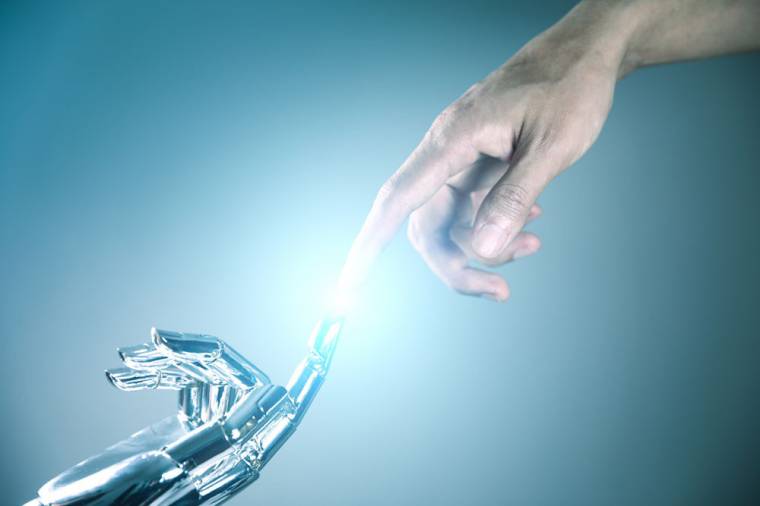Only artificial intelligence can save the future of healthcare
EIT Health encourages European healthcare providers to open up to artificial intelligence, as the pandemic has revealed the fragility of the continent’s health systems. In parallel, the EIT Health will continue its training program in the field of artificial intelligence, for which health professionals are invited to apply again this year.
A recent study by the EIT Health, entitled “Organizational and personal conditions for the introduction of artificial intelligence in Healthcare “- identifies a number of areas that need to be addressed at both European and national level if we are to make the most of artificial intelligence and technology.
Jan-Philipp Beck, EIT Health CEO: “The findings of the Think Tank report provide clear guidance on how to integrate artificial intelligence and related technological innovations into European health systems. We already know that artificial intelligence can transform healthcare, but quickly and with each other. we need to work to help integrate this knowledge as soon as possible ljuk. It is also important in the fight against the coronavirus epidemic that artificial intelligence can be adapted as widely as possible, as healthcare workers have to carry out their work under difficult conditions and can only provide rapid care at the cost of major struggles. Nevertheless, the work we have begun needs to be continued so that we can better prepare for the challenges of the future through health improvements. This is in the interest of all of us. “
The main recommendations of the EIT Health are: European countries need to work better together and share good practice; existing networks and infrastructure should be integrated to integrate artificial intelligence. education and training programs need to be developed, value-based funding models need to be set up that provide funding to healthcare institutions not on the basis of the volume of interventions carried out but on the basis of value creation, and the EIT Health urges that a European data infrastructure be set up as soon as possible. to enable Member States and healthcare systems to share data and to trace diseases for experts, speed up diagnosis and develop new solutions based on artificial intelligence
Training of health professionals is more important than ever
Experts and the medical community agree that important subjects such as artificial intelligence are missing from medical university curricula, although there is a demand from young people. Healthcare systems can benefit greatly from advances in artificial intelligence as well as related technological innovations. They would also allow frontline workers to spend more time healing patients. Automation through artificial intelligence would alleviate labor shortages, accelerate research and development in life-saving treatments and even reduce administrative burdens, according to a joint EIT Health, McKinsey and Company report published in 2020.
“Of course, it is very important to value and retain health professionals, but it is also very important to be able to devote their time to what is most important: healing. However, the introduction and day-to-day application of AI solutions will require new competencies. One of the key challenges will be to have a skilled workforce that is familiar with new technologies and can use solutions based on artificial intelligence.New roles and jobs will be created at the intersection of data and medicine and healthcare workers who interact with man-machine specialize in clinical decision-making. They will also have the task of constantly teaching the algorithms to make them more accurate. Together with GE Healthcare and other EIT Health partners, we want to improve the current situation and prepare healthcare professionals for the challenges of the near future. That’s why this year, too, we’re giving hundreds of health professionals an insight into the latest developments in artificial intelligence and equipping them with valuable theoretical and practical knowledge. The program is also easy to follow for those who have no prior training in programming or state-of-the-art medical innovations. Training is free for applicants from the region, “said Mónika Tóth, EIT Health InnoStars RIS Program Manager.

HelloAI Training for RIS Online researchers and university students in medicine, engineering and finance, for young people who want to work in healthcare and are ready to learn about the technological innovations of artificial intelligence, with around 800 participants from General Electric last year. Healthcare, a program run by GE Healthcare and supported by the Royal Institute of Technology in Stockholm and the Leitati Institute of Technology, and will be joined this year by the Universities of Maastricht and Debrecen and the accelerator HealthVentureLab
“Artificial intelligence can help with faster and more accurate diagnosis and the time thus freed up can be spent by patients on patients. We are committed to supporting the new generation of healthcare professionals on this path, “said Prof. Dr. Mathias Goyen, GE Healthcare’s Chief Health Officer, one of the keynote speakers and key people in the program.
EIT Health It intends to continue to play an important role in the training of health professionals by promoting transparency and cooperation between innovation and care professionals, so that artificial intelligence can be integrated into health systems across Europe and guide decision-makers in order to:
You can apply for the HelloAI RIS Online program here, find more information about the EIT Health Think Tank and the full report here
Hardware, software, tests, curiosities and colorful news from the world of IT by clicking here
The post Only artificial intelligence can save the future of healthcare appeared first on World Weekly News.
